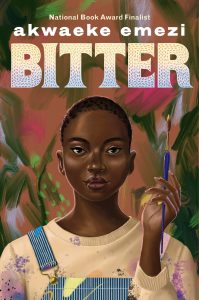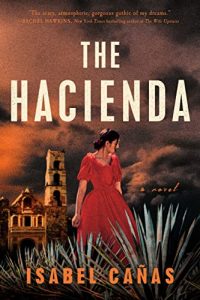The Year in Review 2022 by Maya C. James

My favorite books this year have some dramatic themes: outcasts and revolutionaries, arranged marriages and lovers, generational gifts and curses, uprisings against authoritarians, fascists, and more. Having the opportunity to read some powerful novels this year meant that I could hardly choose just a few favorites for this special year-end essay.
One encouraging trend I saw this year was the youths (or ‘‘yoots’’ as some of us prefer) rising up against injustices and healing from generational trauma. Iranian-American author Ari Honarvar stunned me with her debut novel, A Girl Called Rumi. Set against the backdrop of the Green Uprising and Iran-Iraq war, it holds a special place in my heart for its lyrical nature and fantastical, long-awaited journey across the Seven Valleys of Love. I was unfamiliar with the Conference of Birds poem by Attar of Nishapur that inspired the tale, yet found myself deeply engrossed in the story and how Honarvar’s own identity and upbringing inspired her work.
Glory by NoViolet Bulawayo, Bitter by Akwaeke Emezi, and Invisible Things by Mat Johnson also made some clear allusions to political uprisings in the US, Nigeria, and Zimbabwe. In pop culture and in several well-intended SFF works, I’ve seen some unfortunately cheap and shallow allusions to Nigeria’s endSARS movement and the Black Lives Matter movement in the US, but Emezi offers a genuine love letter to these protestors, as well as a touching tribute to Oluwatoyin ‘‘Toyin’’ Salau, through their powerful novel. Prickly yet lovable protagonist Bitter was my favorite character of the year. I was particularly drawn to Hunting by Stars by Cherie Dimaline for similar reasons: Dimaline’s second book in the Marrow Thieves series was a difficult read, but centered Indigenous communities and survival in a way that centered hope despite immeasurable odds. The Merciless Ones by Namina Forna also lends to this theme of revolutionaries. Ruthlessly violent but shockingly transformative in its aims, the second book of the feminist YA trilogy had some of the more memorable plot twists to it.
 I think my favorites of the ‘‘yoots vs. generational curses’’ theme included: The Monsters we Defy by Leslye Penelope and The Last Dreamwalker by Rita Woods. Both featured capable Black women drawing on the powers of their ancestors and elders to fight against malevolent beings. Both novels were set mostly in the South, DC, and the barrier islands of the Carolinas. As someone whose family has lived in DC for generations, and spent many summers in the barrier islands, I was blown away by how accurate the worldbuilding was, and how relatable the characters were.
I think my favorites of the ‘‘yoots vs. generational curses’’ theme included: The Monsters we Defy by Leslye Penelope and The Last Dreamwalker by Rita Woods. Both featured capable Black women drawing on the powers of their ancestors and elders to fight against malevolent beings. Both novels were set mostly in the South, DC, and the barrier islands of the Carolinas. As someone whose family has lived in DC for generations, and spent many summers in the barrier islands, I was blown away by how accurate the worldbuilding was, and how relatable the characters were.
Many of my favorite books this year also had queer subversions of common romantic tropes. I think specifically of A Taste of Gold and Iron by Alexandra Rowland, where shy crown-prince Kadou falls in love with his hot and stoic bodyguard, Evemer. I studied Turkish as an undergrad, so A Taste of Gold and Iron held a particularly fond place in my heart for its linguistic nods to Turkic languages and the Ottoman Empire. Moreover, it had my favorite magic system: testing metal purity through touch and taste.
Call Me Cassandra by Marcial Gala was my favorite queer retelling of the year. As the most recent reincarnation of Cassandra of Troy, main character Rauli knows he is born in the wrong body, but still contains the memories of the fateful oracle Cassandra. I really enjoyed the blending of Greek myths with orishas, and found a new favorite author within Gala’s writing style.
This was also the first year I actively sought out horror novels. I’m the kind of reviewer who needs to read or watch horror during the day, but still enjoyed The Hacienda by Isabel Cañas. While I would typically be cautious of a Rebecca retelling, the Mexican gothic take on it was a thrill to read.
Since I review predominantly fantasy books, I wanted to point out the books that had some of my favorite worldbuilding elements. Heart of the Sun Warrior by Sue Lynn Tan, Night of the Raven, Dawn of the Dove, by Rati Mehrotra and The Final Strife, by Saara El-Arifi were among my favorite fantastical worlds. The concept of a world turned uninhabitable each night by a nightly hurricane called the tidewinds was fascinatingly awesome and horrific, and landed The Final Strife as one of my favorite books of the year. Night of the Raven, Dawn of the Dove also had an incredibly lush backdrop that was easy to lose oneself in.
Then there were some books that couldn’t fit in a specific category even if I tried. An Earnest Blackness by Eugen Bacon was my only non-fiction read of the year, whereas City of Orange by David Yoon surprised me most with its unexpected ending that had me questioning the genre it was placed in. My all-time favorite read of the year, however, was The Lies of the Ajungo by Moses Ose Utomi, which is set to debut next year, with The Final Strife coming in as a near tie. I have a review of Utomi’s novella coming up, but for now all I will say is that it is officially a part of my fantasy novel canon. Therefore, in somewhat of a particular order, my favorites included:
The Lies of the Ajungo by Moses Ose Utomi
The Final Strife by Saara El-Arifi
A Taste of Gold and Iron by Alexandra Rowland
The Last Dreamwalker by Rita Woods
Bitter by Akwaeke Emezi
The Monsters We Defy by Leslye Penelope
Call me Cassandra by Marcial Gala
Night of the Raven, Dawn of the Dove by Rati Mehrotra
 I unfortunately did not read too many short stories outside of a published collection this year (oops!) but R.S.A Garcia’s ‘‘12 Things A Trini Should Know Before Travelling to a Back In Times Fete™’’, published in Strange Horizons, blends both humor, practical time traveling advice, and Trinbagonian culture into one festive guide. It was a clear favorite by far in terms of writing style, plot, and just plain enjoyment it brought me.
I unfortunately did not read too many short stories outside of a published collection this year (oops!) but R.S.A Garcia’s ‘‘12 Things A Trini Should Know Before Travelling to a Back In Times Fete™’’, published in Strange Horizons, blends both humor, practical time traveling advice, and Trinbagonian culture into one festive guide. It was a clear favorite by far in terms of writing style, plot, and just plain enjoyment it brought me.
I also want to take a brief moment to congratulate many of these authors on a hard-fought battle to publish their works. COVID has caused serious disruptions to many people’s creative processes, and it was a major hurdle to publish, let alone write during this time (on top of the usual hurdles life throws at us). While I had to be more selective in choosing favorites, I was thrilled to have read such high-quality work this year.
Sadly, this will be my last end-year essay for a while, as I am taking a leave from Locus to focus on my own writing. Excitedly though, I’m eager to continue reading Locus and to see what some of these debut authors come up with next!
Maya C. James is a graduate of the Lannan Fellows Program at Georgetown University, and full-time student at Harvard Divinity School. Her work has appeared in Star*Line, Strange Horizons, FIYAH, Soar: For Harriet, and Georgetown University’s Berkley Center Blog, among others. She was recently long listed for the Stockholm Writers Festival First Pages Prize (2019), and featured on a feminist speculative poetry panel at the 2019 CD Wright Women Writer’s Conference. Her work focuses primarily on Afrofuturism, and imagining sustainable futures for at-risk communities. You can find more of her work here, and follow her on Twitter: @mayawritesgood.
This review and more like it in the February 2023 issue of Locus.
 While you are here, please take a moment to support Locus with a one-time or recurring donation. We rely on reader donations to keep the magazine and site going, and would like to keep the site paywall free, but WE NEED YOUR FINANCIAL SUPPORT to continue quality coverage of the science fiction and fantasy field.
While you are here, please take a moment to support Locus with a one-time or recurring donation. We rely on reader donations to keep the magazine and site going, and would like to keep the site paywall free, but WE NEED YOUR FINANCIAL SUPPORT to continue quality coverage of the science fiction and fantasy field.
©Locus Magazine. Copyrighted material may not be republished without permission of LSFF.








